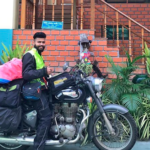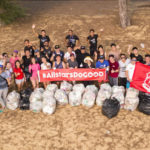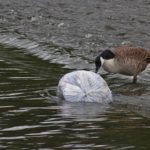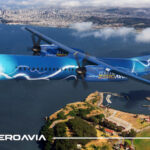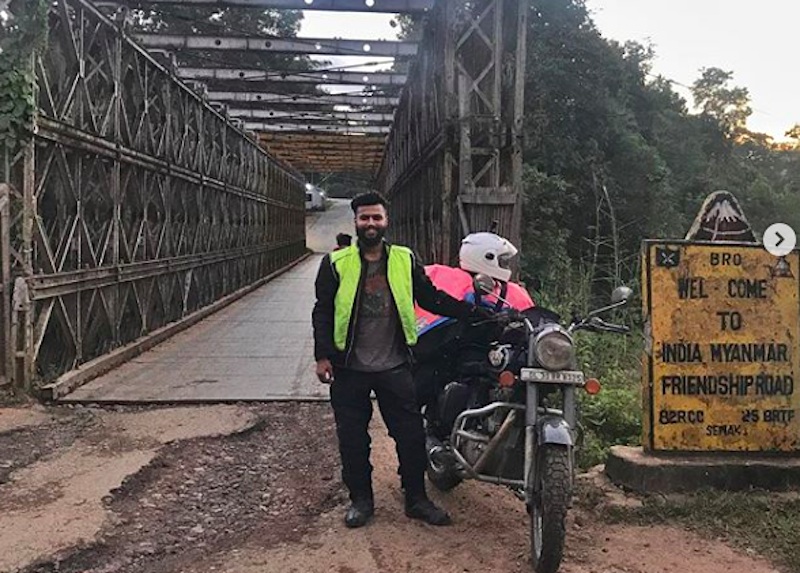
Abhimanyu Chakravorty’s travel packing list is probably a little different from yours. He, for example, will not carry a single-use plastic water bottle. Not those plastic bags either. And you are likely to find steel/bamboo cutlery in his bag.
In 2018, Abhimanyu rode his motorcycle through five countries — Myanmar, Laos, Cambodia, Thailand and Nepal — to create awareness about the huge problem that is plastic pollution and encouraged people to shun single-use plastic products.
He is also a champion of plogging, a growing fad that brings together jogging and picking up trash. He conducts regular plogging activities in New Delhi, which is where he lives.
[ALSO READ: Chiang Mai eateries set to feature in Michelin Guide Thailand 2020]
In a chat with TAN editor Arnab Nandy, the traveller-activist spoke on pollution, travel and how travellers could do their bit to help check plastic pollution.
Excerpts.
AN: How big is the single-use plastic problem? Have we crossed the point of no return?
AC: I am going to be an alarmist here and say it’s a massive environmental problem that most people still don’t have the capacity to recognise. It’s surprising that most of the plastic production only took place only after 1950s and that plastic wasn’t invented until the late 19th century, but somehow over the past decades, we have managed to overwhelm the planet with our consumption patterns. We have consumed and discarded plastic at a rate much higher than what our waste management systems in our cities and across the world can cope with. And as our consumption levels increase, our waste will continue to overwhelm waste management systems put in place. The problem is no one really knows how much non-recycled plastic ends up in our oceans and how long it takes for plastic to completely biodegrade. Some say, that’s more than 400 years. We surely haven’t crossed the point of no return but will soon get there if we don’t arouse the collective conscience of the global community. And I am happy to tell you that there are organisations and individuals across the world that are doing a lot of work to check plastic pollution.
[ALSO READ: Experience Niagra on an eco-friendly boat]
AN: You rode you motorcycle through five countries last year to raise awareness about the problems of using single-use plastic. What significant measures have you noticed tourism-related businesses/hotels taking to reduce single-use plastic consumption?
AC: The experience was an eye-opener. While travelling through rural areas in Laos, Thailand, Cambodia, Nepal and Myanmar, I found the people had a lack of understanding why plastic was bad. I don’t blame them. Most of these countries that bask in the fruits of the polymer industry consider plastic usage as a sign of prosperity. So, there is a proliferation of single-use plastic everywhere I went. Thailand and Cambodia were the worst in terms of usage of single-use plastic. Some shops in Thailand serve water with a straw and wrap bananas in plastic. That’s crazy!
[ALSO READ: Check out these lesser-known destinations in Thailand]
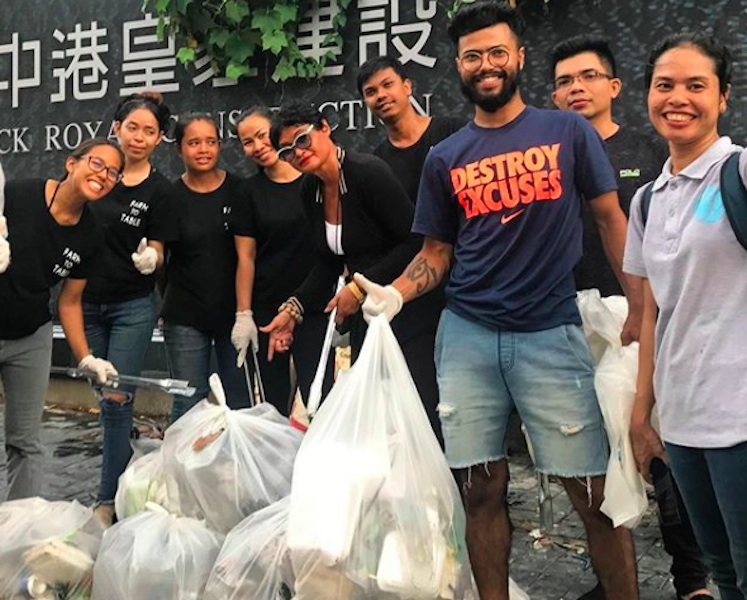
AN: Yes, I’ve seen that…
AC: Bigger businesses like Starbucks have shifted to paper straws, but smaller establishments mostly offer single-use plastic because single-use plastic is value-for-money for most. Lack of better alternatives is also an issue, without which it becomes very tedious for businesses to shift to a sustainable alternative. The popular supermarket chain 7-Eleven is among the worst in terms of dishing out plastic bags, and other single-use plastic products.
[ALSO READ: Western Australia looks to woo Indian tourists through MasterChef Australia]
AN: Tell us about your trip. What were you goals? Did you achieve them?
AC: My primary goal was to promote plogging as a way for individuals and communities to take action against single-use plastic pollution and challenge the everyday use of plastic. Through plogging, my intention was to make people understand the benefits of segregation of waste at source and understand plastics, because not all plastics are bad. The campaign was aimed at a decisive shift in people’s behaviour and at some level, it was made possible due to the involvement of students in the campaign. For instance, students from two schools in Assam and Nagaland, sent me photos from their plogging sessions after I was back from my trip. That was a big achievement. Secondly, the United Nations Environment Programme recognised and featured my project on their official website and did a short video of my project as well. I had not expected it and this certainly was a big achievement.
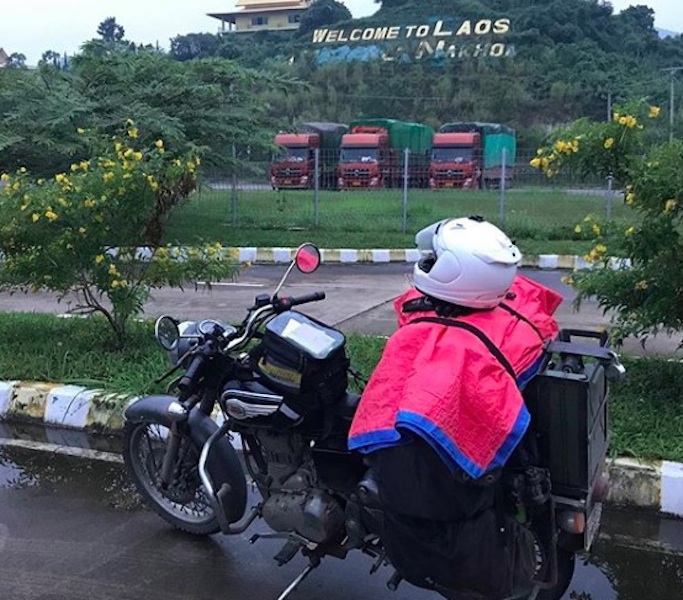
AN: That’s encouraging. But among the five countries, which do you think is making the most visible efforts to reduce the use of single-use plastic?
AC: I think, Thailand. because even though it’s one of the biggest plastic polluters, it is taking action in the form of vowing to stop the import of plastic from other countries to feed its waste to energy plants by 2020. A few companies have made small changes to reduce plastic consumption, such as giving discounts to consumers who bring their own bags or containers. But beyond such steps, nothing concrete on the whole. Other countries are doing much worse i think.
[ALSO READ: Prince Charles sports a kilt as he opens a bed and breakfast in a Scottish castle]
AN: What are the simple things travellers can do so that they don’t add to the problem?
AC: I took the 5 country project to tell people that they don’t need to go so far to take action against plastic pollution. They could do something as simple as saying no to a straw or carrying a cloth bag with them to the market. They don’t have to change their entire lives to shun single-use plastics. People should carry their own reusable water bottles (preferably with a filter) wherever they go, carry their own reusable cutlery (steel or bamboo) and pick up trash wherever they can to leave the place cleaner than it was before. Do plogging on your trips to be a conscious traveller, carry a small cloth bag that you can use to pick trash and wash it later. Involving yourself with a local cleanup activity could actually enrich your travel experience.

